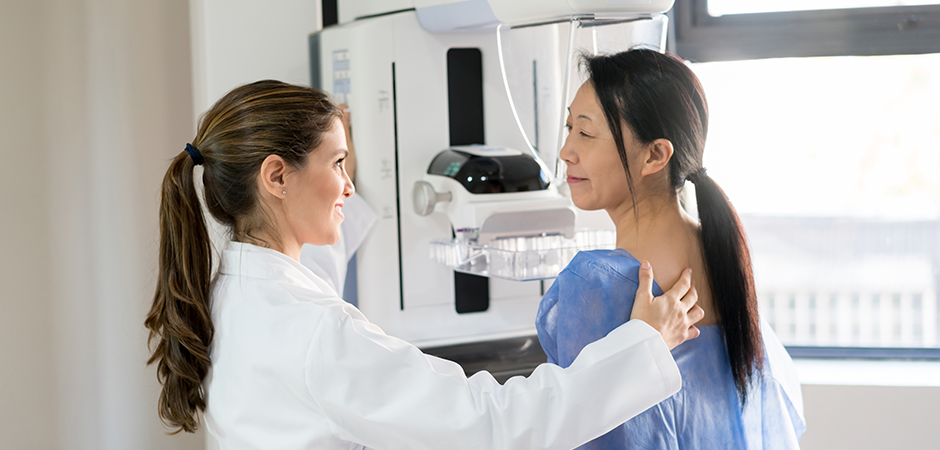
About Breast Cancer
Breast cancer occurs when abnormal cells invade healthy cells in the breast. These cells group together to form a mass of tissue, also known as a growth, lump or tumor. The cells can then spread, affecting other areas of the body as well. There are several types of breast cancer, determined by the cells affected. The most common are invasive ductal carcinoma and invasive lobular carcinoma.
Breast cancer affects one out of every eight women in the United States. While it’s not completely preventable, it is important to know your risk and the early signs to catch it as early as possible. The exact cause of breast cancer is still unknown, but there are several associated risk factors, including genetic and environmental.
Risk Factors:
- Gender
- Age
- Race
- Family and genetic history
- Personal health history
- Menstrual and reproductive history
- Dense breast tissue
Signs and Symptoms
The most common symptom of breast cancer is a lump or mass in the breast. However, in the early stages, symptoms may not be present and the cancer can only be detected through screening. Other symptoms include the following:
- Swelling of the breast
- Skin dimpling
- Breast or nipple pain
- Nipple retraction
- Red, dry, flaky or thickened skin around breast or nipple
- Nipple discharge
- Swollen lymph nodes
Screening
The best way to detect breast cancer early is through a mammogram screening. Annual mammogram screening should begin at age 40. The incidence of breast cancer increases substantially around age 40. Women at higher risk for breast cancer due to family history or other factors should speak to their doctor about initiating annual screening early than age 40.
It’s important to receive a mammogram annually. According to board-certified diagnostic radiologist, Dr. Michael Klouda, even for women ages 50 and older, skipping a mammogram every other year would miss up to 30% of cancers.
The UT Health East Texas HOPE Breast Care Center offers mammograms across East Texas. Click here for more information and screening locations.
Treatment
Upon diagnosis, your doctor will present your case to tumor boards. In this conference, a group of 15-20 doctors who diagnose and treat cancer, including radiologists, pathologists, surgeons, radiation therapists, oncologists and geneticists will review your case and agree on the appropriate treatment. Presenting each case at a tumor boards conference helps to provide each patient with the best treatment plan and limit the number of times the patient goes to the operating room.
Treatment options include radiation therapy, surgery, chemotherapy, immunotherapy and others based on the case. You will discuss your treatment options with your doctor and have the chance to ask questions you may have.

